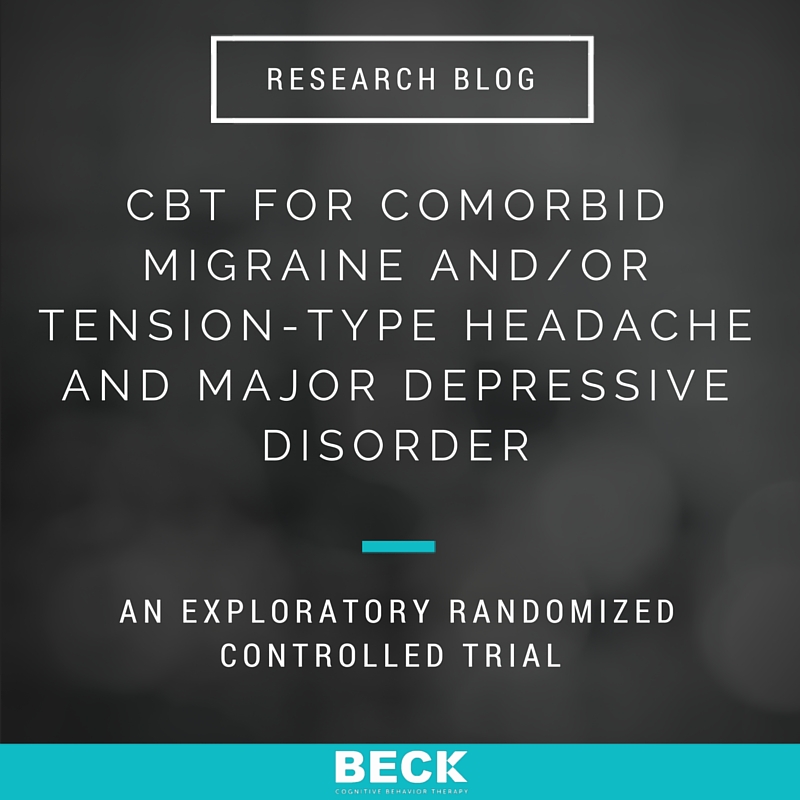Abstract

Numerous studies have demonstrated comorbidity between migraine and tension-type headache on the one hand, and depression on the other. Presence of depression is a negative prognostic indicator for behavioral treatment of headaches. Despite the recognised comorbidity, there is a limited research literature evaluating interventions designed for comorbid headaches and depression. Sixty six participants (49 female, 17 male) suffering from migraine and/or tension-type headache and major depressive disorder were randomly allocated to a Routine Primary Care control group or a Cognitive Behavior Therapy group that also received routine primary care. The treatment program involved 12 weekly 50-min sessions administered by clinical psychologists. Participants in the treatment group improved significantly more than participants in the control group from pre-to post-treatment on measures of headaches, depression, anxiety, and quality of life. Improvements achieved with treatment were maintained at four month follow-up. Comorbid anxiety disorders were not a predictor of response to treatment, and the only significant predictor was gender (men improved more than women). The new integrated treatment program appears promising and worthy of further investigation.
Martin, P. R., Aiello, R., Gilson, K., Meadows, G., Milgrom, J., & Reece, J. (January 01, 2015). Cognitive behavior therapy for comorbid migraine and/or tension-type headache and major depressive disorder: An exploratory randomized controlled trial. Behaviour Research and Therapy, 73, 8-18.